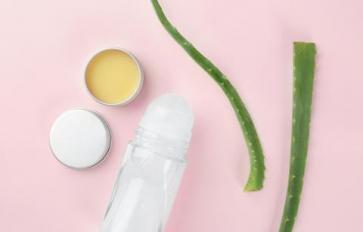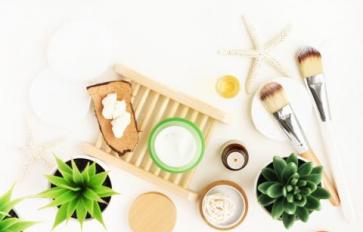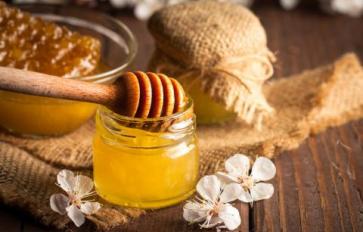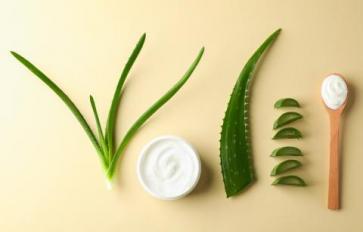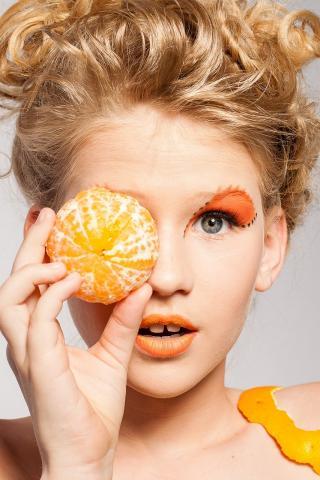
Food isn't the only thing that can be organic: Beauty products can, too. The green beauty industry is booming, and with so many new brands out there, you're bound to see the words 'natural' and 'organic' thrown around. It can get confusing, too: What does each label mean? Don't they mean the same thing? I can assure you, they do not. Unfortunately, many companies are guilty of greenwashing, so it's important to stay alert. There is a distinct difference between natural and organic labels, and I want to make that as clear as possible. Once you understand this, you can make better, more informed decisions in regards to beauty products.
The natural label: What it means
When a beauty product is labeled “natural,” it is often assumed to mean there are no artificial flavors or colors, no irradiated ingredients, no artificial preservatives, and no GMOs. However, there's one big problem with this claim: The FDA and the USDA do not regulate products which possess the 'natural' label. In other words, there is no middleman, no third-party regulation system going on. This means pretty much any company can easily greenwash its products by labeling them as natural.
Of course, there is the flip side to this: Not all things labeled natural are a hoax. A truly natural product is one sourced from the earth. To be completely sure, your best bet is to read the ingredients on the label and see for yourself. If there's an ingredient you aren't familiar with, look it up. I recommend using Environmental Working Group's (EWG) Skin Deep Database to check ingredients and products. This database boasts over 70,837 searchable products. EWG not only rates products but also the brand/company they come from on a scale from 1 to 9. If the cosmetic/brand has a 1 to 2, it's low hazard, but if it's rated 7 to 10, it's a high hazard. I highly recommend searching any product you're considering using here, or simply searching an ingredient you're unsure about.
Remember: Just because a product has one or two natural ingredients in it, does not make it natural. In order for a product to truly be natural, it must contain ingredients with no artificial flavors or colors, no irradiated ingredients, no artificial preservatives, and no GMOs.
The organic label: What it means
What does the organic label mean then? It means products that boast the USDA organic seal must contain no toxic and persistent pesticides, no petroleum-based fertilizers, no cloning, no synthetic growth hormones, no artificial preservatives, no GMOs, and no irradiated productions or ingredients. Also, organic farming lowers levels of environmental pollution while natural farming doesn't necessarily do the same. That's a lot more than the natural label promises, but how do you know if it's actually enforced? What if the organic label is just as unregulated as the natural label?
Impossible. That's because all products that have the USDA organic label must follow a strict set of government standards and regulations. Products that want to receive certification must be assessed and pay a fee. These companies must also continue to meet USDA organic standards and are subject to annual inspections, which can be announced or unannounced visits. If the USDA doesn't feel like a product measures up to its standards anymore, it can remove the seal from a product.
Many companies that claim to be natural also claim to be organic. However, simply saying they are organic isn't enough: They have to have the USDA organic seal to prove it. That said, it is important to note that even with this seal, a product is not guaranteed to be 100 percent organic. Unless the product clearly says it's 100 percent organic and displays the USDA seal, then only 95 percent or more of the product must contain organic ingredients. This isn't a bad thing (and it shouldn't stop you from buying organic products), but it can get confusing when you are looking for completely pure products.
Also, one last thing to note: If it says "made with organic ingredients" that means at least 70 percent of the ingredients are organic. I recommend looking up the other, non-organic ingredients on the label to make sure they're safe. Cosmetics are rarely regulated so I specifically recommend doing this for them using EWG's skin deep database. Here's more information on all the terms regarding the organic label, such as 100 percent organic, organic, and made with organic ingredients.
That said, please be aware that certain ingredients cannot be certified organic, despite being natural and safe. This is because, to be certified organic, an ingredient must be edible. There are no differences in the standards for food to be certified organic and personal care products. So that means if an ingredient is not allowed in a food, it is not allowed in a certified organic product. Some examples of safe, natural ingredients that cannot be certified organic include mica, zinc oxide, waxes, and decyl polyglucose. These are used to make a lot of cosmetics, like lipstick or eyeshadow, so please don't be alarmed if you see them in your products. They cannot be certified organic, but they are otherwise harmless.
Conclusion: Go organic
Trust me when I say organic products are better. If you truly want to play it safe, look for brands that have USDA certified organic ingredients in their products. Unfortunately, it's almost impossible to find a brand of cosmetics that's completely 100 percent certified organic (with the seal and everything), due to the reasons mentioned above. For example, certain ingredients needed to make cosmetics, even if they're of natural origin, cannot be certified organic. For that reason, most makeup brands, no matter how pure their ingredients, will never carry the official USDA organic seal. That's okay though, because there are a lot of brands that come as close as you can get. When it comes down to it, do your own research and decide for yourself what you're okay with putting on your body. Make sure to always read the ingredient label, and if you don't know what an ingredient is, look it up! Better safe than sorry.





